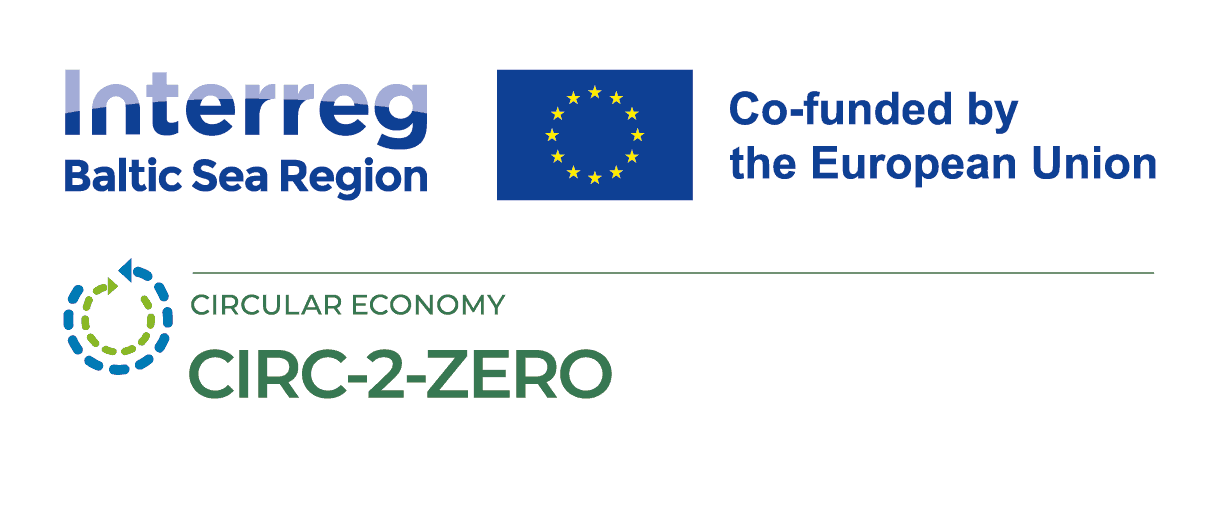
CIRC-2-ZERO Project I Co-Creation Workshop
04 November 2025
CIRC-2-ZERO Project held its I Co-Creation Workshop to Advance Digital Twin Demo Platform Solution
K8 and Riga Technical University successfully hosted the first Co-Creation Workshop of the CIRC-2-ZERO project, bringing together 23 participants from 13 partner organizations across seven Baltic Sea region countries. The online event marked a significant milestone in developing the project’s core solution, which is the Digital Twin Demo Platform (DTDP).
The workshop focused on two critical themes: Personas and Manufacturing Processes, aiming to ensure that the DTDP meets real-world needs in the Electronics and Engineered Wood Products (EWP) sectors. Partners collaborated to map production processes into a unified reference model, forming the foundation for customized digital twin solutions tailored to individual SMEs, and drafted personas for the DTDP software development process.
Driving DTDP Development with Data
The session began with an overview of consolidated data gathered from previous focus groups and technical workshops. This data, combined with ongoing industry surveys, informed the platform’s design and functionality, ensuring alignment with user expectations. Results will be published later.
User-Centered Design Through Personas
Participants engaged in breakout sessions to define technical requirements from a user perspective. Five representative user groups were identified:
- CEO of an EWP company
- CEO of an electronics manufacturing company
- Designer
- Product Engineer
- Production & Quality Control Engineer
To support the development of the Digital Twin Demo Platform (DTDP), user personas were created to capture specific needs and expectations and explored in detail during collaborative discussions. Project partners shared regional insights, including local regulations and practices, to ensure cultural diversity and relevance.
Industry Use Case
The workshop featured a real-world example from VIZULO, an electronics equipment manufacturer. The case study illustrated how standardized workflows could integrate customization, highlighting challenges and opportunities for introducing circular concepts and digital tools. Discussions emphasized efficiency, cost-effectiveness, and flexibility as key priorities for the DTDP.
Next Steps
Insights from this workshop shaped the next phase of DTDP development, ensuring a robust, user-driven platform that supports sustainable and innovative manufacturing practices in the Baltic Sea region.





